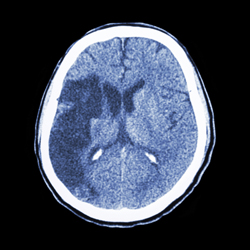Delivering novel treatments for stroke
Stroke occurs when the blood supply to the brain is interrupted mainly due to blood clots occluding blood vessels, sometimes also causing neurological impairment. Current treatment of acute ischaemic stroke entails the administration of thrombolytic compounds such as tissue plasminogen activator within 3 to 4.5 hours of the episode. However, lack of access limits thrombolysis to only a portion of stroke victims worldwide. The EU-funded 'Affording recovery in stroke' (ARISE) project brought together stroke researchers and clinical expertise alongside pharmaceutical small and medium-sized enterprises. The key objective was to unveil the complex aetiology of stroke and develop therapeutic strategies for targeting inflammation as well as protecting against neuronal damage. Partners used pre-clinical models of ageing, atherosclerosis and obesity — the key risk factors of stroke — to study the involvement of inflammation in stroke and brain injury. They found that these comorbidities raise the systemic levels of inflammation and interleukin-1 (IL-1) plays an instrumental role. Neuronal inflammation after experiencing a stroke was generally associated with a worse outcome and blocking of IL-1 signalling was developed as a therapeutic strategy. A thorough investigation of the remodelling processes occurring after a stroke episode revealed that neuronal stem cells migrate to the site of injury and replenish damaged neurons. A number of treatment modalities (e.g. inhibition of CXCR4, L-DOPA administration) were tested to enhance functional recovery after stroke. The consortium developed a novel ultrasound-based technology that delivers acoustic waves to the brain and briefly opens up the blood-brain barrier (BBB). This enables targeted drug delivery to the brain. Alternatively, partners used nanomaterials to transport drugs across the BBB. Overall, the work of the ARISE consortium led to eight international patent applications, all of which concern novel treatments for stroke. Given that most stroke risk factors can be prevented or ameliorated, a considerable effort of the ARISE project was devoted to educating the public about these risk factors and strategies to decrease personal stroke risk. Coupled with the proposed therapeutic modalities and the initiated clinical trials, the activities of the project will help improve the outcome of stroke patients.
Keywords
Stroke, inflammation, neuronal regeneration, thrombolysis, blood-brain barrier

